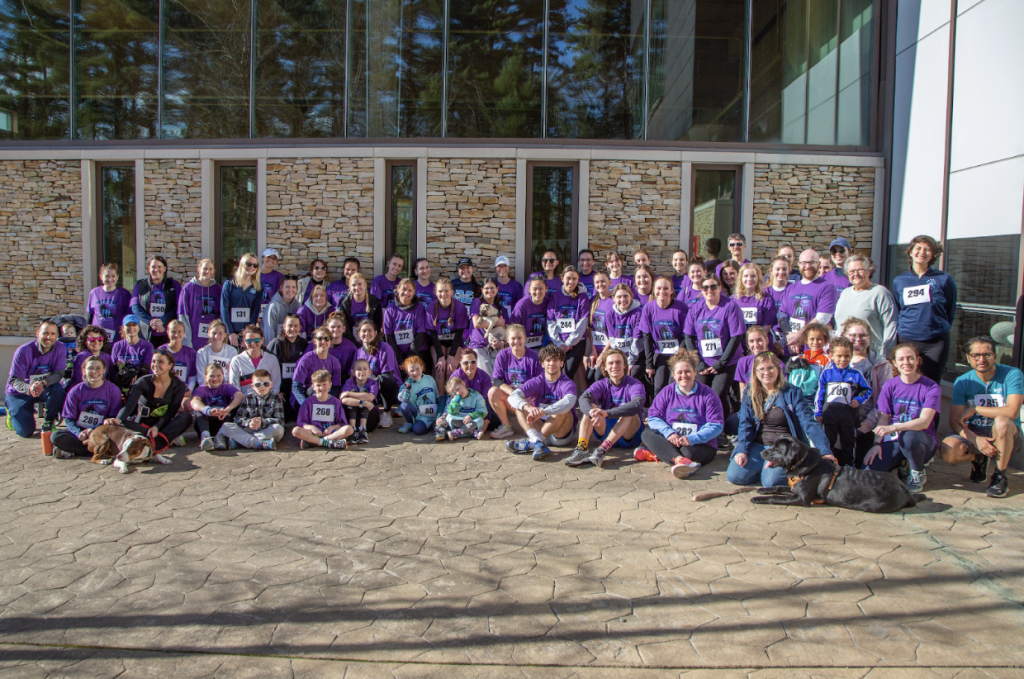
WellNurse Initiative Fosters Mindfulness and Community in Nursing
From the days of Mary Seacole and Florence Nightingale, the modern nurse is charged with some of the most stressful yet critical work imaginable. While the profession will likely always be stressful, researchers at the University of Maine (UMaine) are working to reduce that stress by giving nurses the necessary resources to handle and respond to it.
WellNurse through the UMaine School of Nursing is an initiative made possible by a $1.5 million award from the federal Health Resources and Services Administration that seeks to improve health and public safety workforce resiliency training.
The initiative is led by Kelley Strout, Director of the UMaine School of Nursing and Associate Professor of Nursing, who explained that over the past decades, nurses have increasingly left the profession because of burnout, stress, and trauma. This problem intensified with the onset of the COVID-19 pandemic. Nurses were asked to reuse personal protective equipment, treat an unknown and deadly disease, and risk bringing it home. On top of this, nurses, many early in their careers, saw an immense amount of death during the pandemic and were often the only ones present for it. They were operating on the front lines of the pandemic and not necessarily receiving the support they needed to do so sustainably.
“COVID highlighted the systemic issues we have in our healthcare system,” explained Strout. “High patient ratios, extremely sick patients, the population is unhealthy, particularly in our state and where we live.” While the COVID-19 pandemic is waning, these issues in the healthcare system have put pressure on all forms of care and lead nurses to leave the profession at an alarming rate.
Through WellNurse, which was launched in 2022, researchers are experimenting in real-time with data to provide emotional resources to students, faculty, and staff to promote their well-being and resilience. Strout remarked, “Stress is there. We can’t change stress, but we have the choice in how we respond to it.”
Strout leads an interdisciplinary team of researchers, which includes nurses, statisticians, nutritionists, sociologists, and other specialists. They examine what is causing stress and implement interventions such as mindfulness-based stress reduction, mindful eating and nutrition, and a wellness room. These strategies are evaluated for their effectiveness, using the UMaine School of Nursing students.
Strout stressed that cultivating community and belonging is critical to this effort. Giving people a support system where they can learn together helps them as they try to implement what they are learning.
In some form, many of the resources are already available at UMaine. WellNurse is removing barriers to utilizing them. This can take many forms, whether it is removing fees for the campus recreation’s BlackBear 5K and Healthy High races or giving students the funds to buy groceries so they can try recipes and cook nutritious meals. One of the biggest ways WellNurse can make these resources more accessible is by making them part of a class. It is easy to forget that being a student is a full-time job in many ways. When learning how to manage stress in the classroom, the students can develop healthful and mindful habits without disrupting their already busy schedules.
As part of this project, researchers found that many students graduating high school are already stressed and at high risk for burnout before they enter college. WellNurse is adjusting to this observation. “This year, we changed gears a bit with our first-year cohort. We had 82 students come to campus a week early and ran them through a full six-day immersive curriculum that focuses on their holistic health including an introduction to mindfulness, daily yoga, nutrition and fitness, college success and belonging, and more,” said Strout. WellNurse believes this will better position these students for success. Nursing programs are rigorous, and many students who do not progress from programs cite stress as one of the leading causes.
In the end, retention is the name of the game. WellNurse wants to help nurses be nurses who have long, sustainable, and fulfilling careers. Meeting this challenge requires large interdisciplinary teams like WellNurse that can take a holistic look at the problem and develop sustainable solutions. WellNurse’s current funding concludes at the end of 2024, but their work will continue beyond that date. The sustainability of this work is a significant focus in 2024 so the school and profession can grow and serve as a model for programs across the country.

Contact: research@maine.edu
Written by Daniel Timmermann
